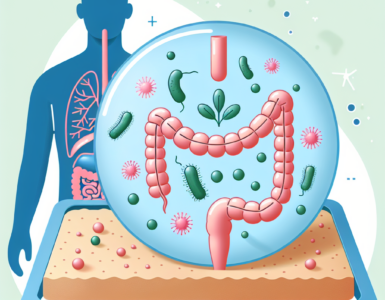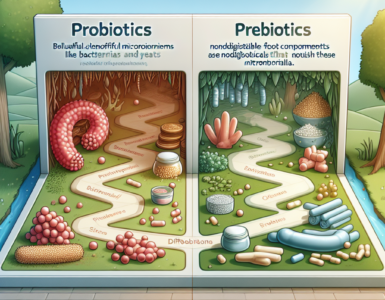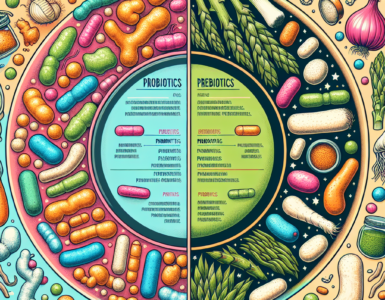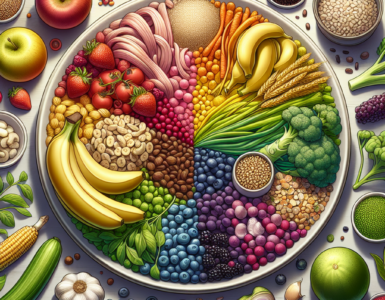Nutrient density is an important concept when it comes to achieving optimal health and wellness. Eating foods that are nutrient-dense can lead to improved energy levels, a healthier immune system, better mental health, weight management, and reduced risk of chronic diseases. In this article, we will explore what nutrient density is, its importance in a balanced diet, key nutrient-dense foods, and the benefits of a nutrient-dense diet.
Understanding Nutrient Density
When it comes to maintaining a healthy and balanced diet, understanding nutrient density is key. Nutrient density refers to the amount of essential nutrients, such as vitamins, minerals, and antioxidants, that a food contains in relation to its caloric content. In other words, a nutrient-dense food provides a high amount of essential nutrients per serving, while containing relatively few calories.
What is Nutrient Density?
When it comes to determining the nutrient density of a food, it’s important to consider the variety and amount of essential nutrients it contains. Nutrient-dense foods are typically whole, minimally processed foods that are rich in vitamins, minerals, and other beneficial compounds. Some examples of nutrient-dense foods include leafy greens, berries, nuts and seeds, whole grains, and lean proteins.
On the other hand, foods that are high in calories but low in essential nutrients are considered calorie-dense. These foods may provide a quick source of energy, but they do not provide the same nutritional benefits as nutrient-dense foods. Examples of calorie-dense foods include sugary drinks, fried foods, and processed snacks.
The Importance of Nutrient Density in a Balanced Diet
A balanced diet is essential for overall health and wellness. It should include a variety of foods from all food groups, including fruits and vegetables, whole grains, lean proteins, and healthy fats. However, the quality of the foods we eat is just as important as the quantity.
Consuming nutrient-dense foods ensures that our bodies are getting the essential nutrients they need without excess calories or unhealthy additives. This can help to reduce the risk of chronic diseases, such as heart disease, diabetes, and certain types of cancer. In addition, a diet rich in nutrient-dense foods can help to support a healthy immune system, improve cognitive function, and promote healthy aging.
Nutrient Density vs. Caloric Density
It’s important to understand the difference between nutrient density and caloric density when making food choices. While some foods may be high in calories, they may not necessarily provide the vital nutrients that our bodies need. For example, a donut and an apple may contain the same number of calories, but the apple is far more nutrient-dense and provides a variety of essential vitamins and minerals.
When choosing foods, aim to include a variety of nutrient-dense options in your diet. This can include colorful fruits and vegetables, whole grains, lean proteins, and healthy fats. By prioritizing nutrient density in your food choices, you can support overall health and well-being.
Key Nutrient-Dense Foods
Eating a nutrient-dense diet is essential for maintaining good health and preventing chronic diseases. Incorporating a variety of nutrient-rich foods into your meals can help ensure that you are getting all of the vitamins, minerals, and other essential nutrients your body needs to function properly. Here are some key nutrient-dense foods to add to your diet:
Fruits and Vegetables
Fruits and vegetables are some of the most nutrient-dense foods you can eat. They are packed with an array of vitamins, minerals, fiber, and antioxidants that can help boost your immune system and lower your risk of chronic diseases such as type 2 diabetes and heart disease. Aim to include a variety of colors in your diet, such as dark leafy greens, brightly colored berries, and orange or red vegetables. Try adding a handful of spinach to your morning smoothie or snacking on some sliced bell peppers with hummus.
Did you know that some fruits and vegetables are particularly high in certain nutrients? For example, sweet potatoes are a great source of vitamin A, while citrus fruits are high in vitamin C. Incorporating a variety of fruits and vegetables into your diet can help ensure that you are getting all of the essential nutrients your body needs.
Whole Grains
Whole grains are another excellent source of nutrients. They contain fiber, B vitamins, and minerals such as iron, magnesium, and selenium. Look for whole-grain bread, pasta, and cereals, and aim to consume at least three servings of whole grains per day. Whole grains can help keep you feeling full and satisfied, making them a great addition to any meal.
Did you know that there are many different types of whole grains? Some examples include quinoa, brown rice, oats, and barley. Experiment with different types of whole grains to find the ones you enjoy the most.
Lean Proteins
Lean proteins are essential for building and repairing muscle tissue, as well as other important bodily functions. They also contain essential amino acids, which our bodies cannot produce on their own. Choose lean proteins such as chicken, fish, turkey, tofu, and legumes. Incorporating a variety of lean proteins into your meals can help ensure that you are getting all of the essential amino acids your body needs.
Did you know that plant-based sources of protein such as legumes and tofu are also high in fiber? This can help keep you feeling full and satisfied after meals.
Healthy Fats
Healthy fats are an important part of a nutrient-dense diet. They can help regulate hormones, support brain function, and boost heart health. Aim to consume sources of healthy fats such as nuts and seeds, avocado, olive oil, and fatty fish such as salmon. Incorporating healthy fats into your meals can help keep you feeling satisfied and can also help your body absorb certain vitamins and minerals more effectively.
Did you know that some types of nuts and seeds are particularly high in certain nutrients? For example, almonds are a great source of vitamin E, while pumpkin seeds are high in zinc. Adding a handful of nuts or seeds to your meals or snacks can help boost your nutrient intake.
Nuts and Seeds
Nuts and seeds are another great source of essential nutrients. They contain healthy fats, protein, and a variety of vitamins and minerals. Aim to consume a variety of nuts and seeds such as almonds, walnuts, chia seeds, and flaxseeds. Adding nuts and seeds to your meals or snacks can help provide a satisfying crunch and can also help boost your nutrient intake.
Did you know that some nuts and seeds are also high in antioxidants? For example, walnuts are a great source of polyphenols, while chia seeds are high in flavonoids. Incorporating a variety of nuts and seeds into your diet can help ensure that you are getting all of the essential nutrients your body needs.
The Benefits of a Nutrient-Dense Diet
Eating a nutrient-dense diet is one of the best things you can do for your body. Nutrient-dense foods are those that are rich in vitamins, minerals, and other essential nutrients that our bodies need to function properly. These foods include fruits, vegetables, whole grains, lean proteins, and healthy fats. Here are some of the benefits of a nutrient-dense diet:
Improved Energy Levels
When our bodies are properly nourished with essential nutrients from nutrient-dense foods, we may experience improved energy levels. This can help us be more productive throughout the day and enhance our overall quality of life. In addition to providing energy, nutrient-dense foods can also help regulate our blood sugar levels, which can prevent energy crashes and fatigue.
Enhanced Immune System
Consuming a nutrient-dense diet can also help boost our immune system. Many of the vitamins and minerals found in nutrient-dense foods, such as vitamin C and zinc, play an important role in immune function. These nutrients can help our bodies fight off infections and illnesses, and may even reduce the severity of symptoms if we do get sick.
Weight Management
A nutrient-dense diet can also help with weight management. When we consume nutrient-dense foods, we are often satisfied with fewer calories. These foods are typically high in fiber, which can help us feel full and satisfied for longer periods of time. Additionally, consuming nutrient-dense foods regularly can help lower our cravings for processed and unhealthy foods, which can contribute to weight gain.
Reduced Risk of Chronic Diseases
Research has shown that a nutrient-dense diet can help reduce our risk of chronic diseases such as type 2 diabetes, heart disease, and certain types of cancer. Consuming a variety of vitamins, minerals, and antioxidants from nutrient-dense foods can help protect our bodies against oxidative stress and inflammation, both of which are linked to chronic diseases. By incorporating more nutrient-dense foods into our diets, we can help prevent these diseases and maintain optimal health.
Better Mental Health
A nutrient-dense diet can also have benefits for our mental health. Some of the nutrients found in nutrient-dense foods, such as omega-3 fatty acids, have been linked to better mental health and a reduced risk of depression. In addition, consuming a diet that is rich in fruits, vegetables, and whole grains can help reduce inflammation in the body, which has been linked to a higher risk of depression and other mental health disorders.
In conclusion, a nutrient-dense diet is essential for optimal health and well-being. By incorporating more fruits, vegetables, whole grains, lean proteins, and healthy fats into our diets, we can experience improved energy levels, enhanced immune function, better weight management, reduced risk of chronic diseases, and better mental health.
Conclusion
In conclusion, nutrient density is an essential concept when it comes to achieving optimal health and wellness. By consuming nutrient-dense foods such as fruits and vegetables, whole grains, lean proteins, healthy fats, and nuts and seeds, we can improve our energy levels, boost our immune system, manage our weight, reduce our risk of chronic diseases, and enhance our mental health. So go ahead and start unlocking the power of nutrient density for your optimal health today!
Disclaimer
Any changes to your routine should not be made using the content of this article. Always take care of your health and seek advice from healthcare professionals.
Note: The information provided in this article is for educational purposes only and is not intended to be a substitute for professional medical advice, diagnosis, or treatment. Always seek the advice of your physician or other qualified healthcare provider with any questions you may have regarding a medical condition.










